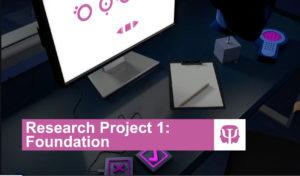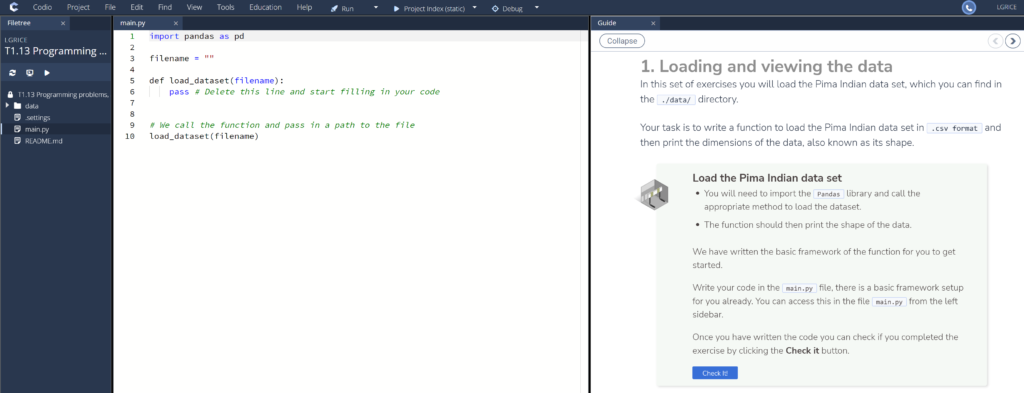Today our online students are back and we’re launching 16 new, fully online modules across eight different programmes. In this post I’ll highlight three examples to give a flavour of what goes into our online modules.
A product of collaboration and team work
We collaborate with academics at University of London member institutions. Today, new modules from the following programmes are launching:
- BSc Business Administration (Royal Holloway, University of London)
- BSc Psychology (King’s College London)
- MSc Accounting and Financial Management (UCL)
- MSc Computer Science (Birkbeck, University of London)
- MSc Global Environment and Sustainability (Birkbeck, University of London)
- MSc Marketing (Birkbeck, University of London)
- MSc Professional Accountancy (UCL)
- MSc Project Management (Royal Holloway, University of London)
It’s a massive team effort to reach this stage. Work started about nine months ago and involved a team including academic subject experts from our member institutions, project managers, learning designers, librarians, editors, motion graphics designers, videographers, learning technologists and leaders.
What goes into our modules?
Our online programmes cover a variety of disciplines so we design the learning activities carefully and take care to choose the right tools for the job. Here are three highlights:
1. Visualising the student journey through a Research Project foundation module
Part of the BSc Psychology (King’s College London)
 On the BSc Psychology, students complete a research project entirely online, beginning with a foundation module to help prepare them to start their research. For our students, this module requires a lot of independent learning and self-motivation.
On the BSc Psychology, students complete a research project entirely online, beginning with a foundation module to help prepare them to start their research. For our students, this module requires a lot of independent learning and self-motivation.
Alex Martin, doctoral student at King’s College London’s Institute of Psychiatry, Psychology & Neuroscience, was one of the the academic subject experts on this module. She describes the situation we faced.
“Developing a novel approach to online research projects to include primary data collection presented several challenges. Not least was to find an inclusive way to present a heavy load of information to students to introduce the module. We wanted an audio visual solution to complement the written content, and I could ‘see’ the course outline in my head. Taj and Anna in the learning design team were fantastic, they enabled the image in my head to come out onto the screen! In fact, the animated version Taj created was far better than I imagined.”
Here’s an excerpt from the roadmap video, presented by Professor Jenny Yiend, programme director.
Oliver Hodgkins, video editor, commented, “Taj realised this concept nicely, building a journey along a road in a 3D space that features roadsigns, signposts and stops to convey the key information”. To accompany the animations, we also filmed live in our studio, “It was also nice to get back in the studio, albeit a temporary one, after a long pandemic-enforced break, to film BSc Psychology programme director Jenny Yiend who presented the video. She did a great job on the day”.
The animated roadmap will give our students a framework to understand the module structure, into which they can slot the more complex module information as they progress.
2. Coding activities with built-in feedback in Applied Machine Learning
Part of the MSc Computer Science (Birkbeck, University of London)
 In this module students were set programming tasks to practise and apply their coding skills. Larisa Grice, Learning Designer, explains how she designed these activities to ensure students receive feedback as part of the task, “Students use Codio, a cloud-based learning platform for Computer Science subjects. Codio includes a built-in Integrated Development Environment (IDE) so that students can code in it.”
In this module students were set programming tasks to practise and apply their coding skills. Larisa Grice, Learning Designer, explains how she designed these activities to ensure students receive feedback as part of the task, “Students use Codio, a cloud-based learning platform for Computer Science subjects. Codio includes a built-in Integrated Development Environment (IDE) so that students can code in it.”

Our online learners are usually studying alone, so by using Codio, they have the opportunity to practise real coding skills and to get feedback on their output, even when the tutor is not there.
3. Fortnightly discursive webinars in Global Food Systems and Health
Part of the MSc Global Environment and Sustainability (Birkbeck, University of London)

This subject lends itself to discursive tasks, and the module relies on less upfront content development and more hands-on teaching during the delivery of the module. It’s social, activity-rich, online learning, moving between synchronous and asynchronous modes as needed.
This approach provides a learning experience for students that encourages the development of critical thinking skills. They engage in-depth with the subject and are active participants in the construction of their knowledge, skills and understanding. The module leader is engaged in the online teaching of the module as it runs – steering discussions, monitoring activities, running online seminars.
A feature of this programme is a regular webinar to conclude each topic, every two weeks. Students prepare by completing activities and then meet in real time as a group, with their tutor, to discuss.
Catherine Luck, Learning Designer, explained the rationale, “We structured these modules differently to emphasise the importance of discussion and debate to develop students’ critical thinking skills. At the end of every topic, students meet in a webinar with their tutor to discuss challenging concepts with their peers, to ask questions and to reinforce their learning.“
As a learning designer, I really enjoy the challenge of using the tools available in an online environment to create interesting and challenging activities for our learners, across various disciplines, and it’s a pleasure to work with such a big team to bring the subjects to life.
Want to see what else goes into our modules? Check out how we use podcasts in international business, how we handle hard hitting scenarios in forensic psychology, and use storytelling to bring learning to life.
Anna Armstrong, Learning Designer
